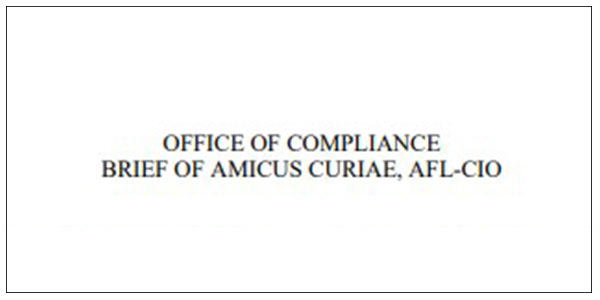The AFL-CIO submits the following comments regarding the application of Section 207(a) of the Congressional Accountability Act (CAA) in response to the Office of Compliance’s request for such comments. In sum, we suggest the language of Section 207(a) encompasses and makes unlawful a broad range of retaliatory employer behavior, including intimidating threats or coercive statements standing alone. We suggest that in most instances of employer intimidation the intimidating threats or coercive statements themselves will provide direct evidence of the employer’s retaliatory motive and that the intimidation will, by its nature, have a single motive. However, we also note that a mixed-motive framework may be needed to analyze claims of reprisal and discrimination and suggest using the burden-shifting framework presented in Mt. Healthy School District Board of Education v. Doyle to determine liability in such cases.
I. Section 207(a) Defines “Unlawful Employment Practice” Broadly
Section 207(a) of the CAA makes it an unlawful employment practice for an employing office “to intimidate, take reprisal against, or otherwise discriminate against” employees covered by the CAA because the covered employee “has opposed any practice made unlawful by [the CAA], or because the covered employee has initiated proceedings, made a charge, or testified, assisted, or participated in any manner in a hearing or other proceeding” under the CAA. 2 U.S.C. § 1317 (1995) (emphasis added). This section, unlike some of the other anti-retaliation provisions contained in laws made applicable to the Legislative branch by the CAA, makes it unlawful for an employer to intimidate its employees even where the intimidation does not negatively affect the terms, conditions or benefits of employment.1 Because Section 207(a) prohibits a broad range of employer activity– i.e., intimidation, reprisal and discrimination — an approach should be adopted to analyze the distinct claims that may be raised under it.
The Americans with Disabilities Act (ADA) anti-retaliation provision contains language similar to that used in Section 207(a) of the CAA, prohibiting discrimination as well as coercion, intimidation and threats, and should provide guidance in analyzing CAA Section 207(a) claims.

